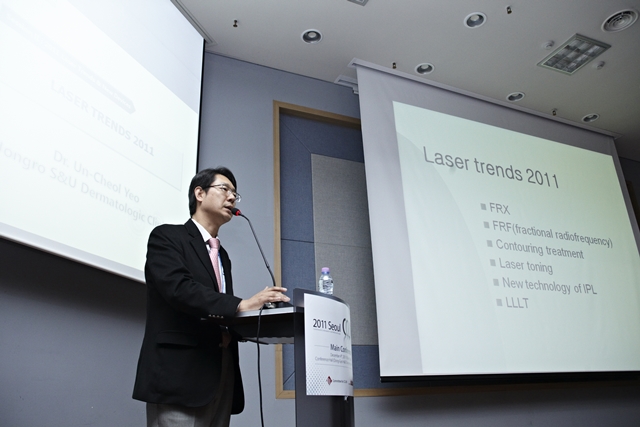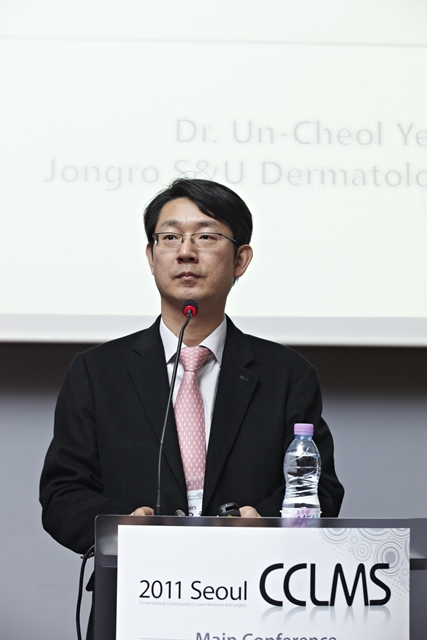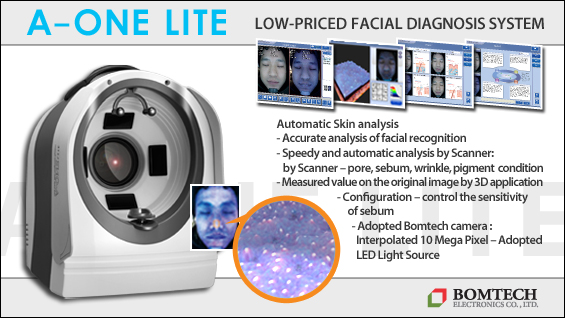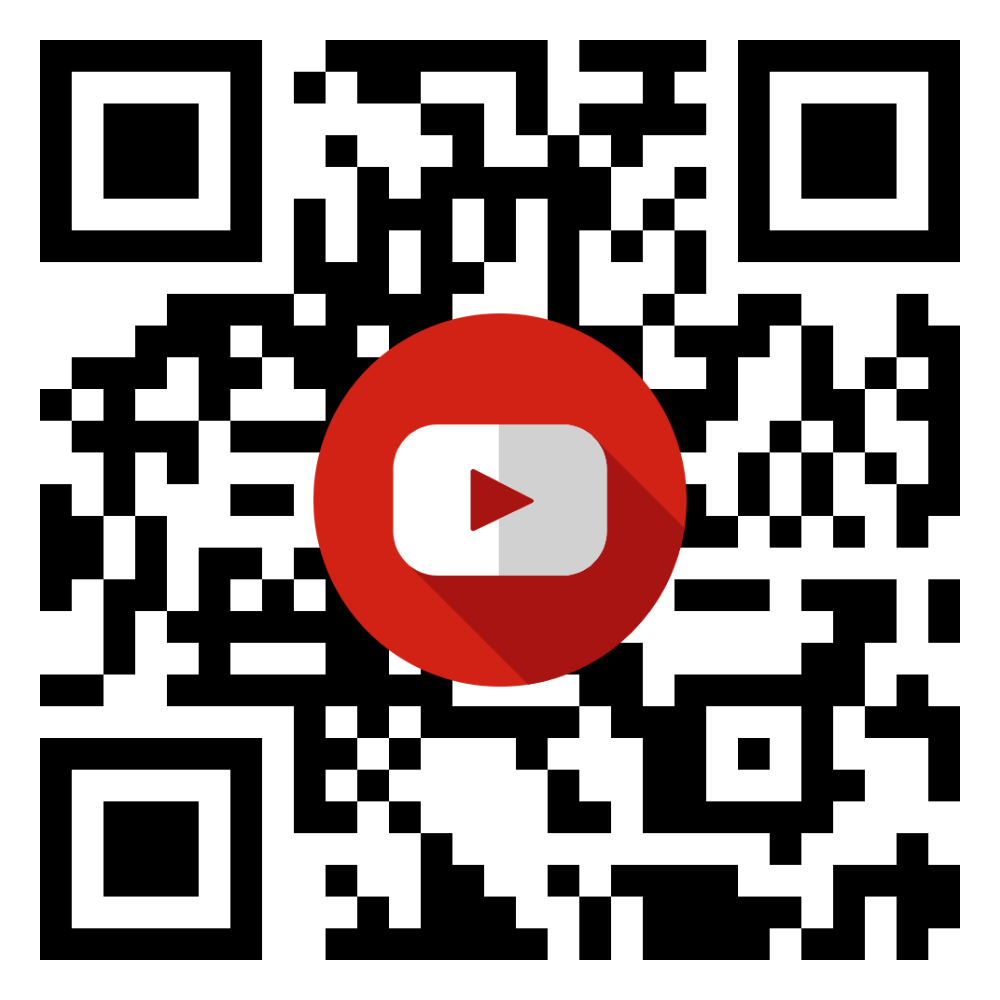
“Be confident and maintain objectivity.”
Dr. Yeo Uncheol of Jongro S&U Dermatology Clinic is a famous speaker both inside and outside of Korea. He remembers Professor No-gyung Kim’s hemato-oncology lecture as one of the most influential talks in his life.
“Prof. Kim was one of very few Korean specialists in blood cancer. His lecture was very unique. Other professors focused on giving as much information as possible using even two screens for their numerous slides during their talk. On the other hand, Prof. Kim only used a blackboard and chalk without any visual support. This may seem less prepared at first but his talk had more useful information. The detailed outline of the lecture was in his head and he calmly emphasized important points. As his understanding of the material was complete, I was able to grasp it more easily. Through his talks, I learned that gaining expertise in your field was more important than covering shortcomings with fancy presentation techniques.”
For his very first presentation, Dr. Yeo had to give an hour long talk at Dermatology Grand Round (DGR) as a first-year resident of dermatology at Seoul National University College of Medicine.

“I was nervous because the audience was made up of specialists and professors. If I chose a topic of a rare genetic disease, such as epidermolysis, I could avoid being stumped on a difficult question. There were only few doctors specializing in such conditions and likelihood of questions was low. However, I chose steroids, one of the most common topics. At the time I thought it would be better to be familiar with this important part of a dermatologist’s career rather than having an easy time on the podium. Three months went into preparation and fortunately I had a successful presentation. The knowledge I gained from this experience on my chosen topic served me well throughout my career.”
Dr. Yeo has defined the conditions of a good presentation based on his experience. He has established a database on his specialty and continues to update it for his talks. Below, he provides tips on how to prepare for a good talk based on his extensive experience.
“First, I habitually collect data for my presentations and prepare PowerPoint slides for all new materials. Based on these materials, I create stories and edit them as ideas come to me. When slides are completed, I prepare for the talk considering that I use about 80% of materials prepared. It is difficult to use 100% of prepared materials in your talk. I meticulously study every thing for the lecture but knowing only 80% of the information will be delivered helps me be more confident and relaxed at the lecture.”
Dr. Yeo emphasizes the importance of content over techniques but provides the following advice.
“The audience has a short attention span. Once you lose them, it takes a long time to get them focused on your talk again. To shorten this time, I show on each side where the current slide is in the outline of the entire presentation.”
He also advised novice speakers to be confident.
“The more you study, the more comfortable you will feel on the podium. You have to feel that you have the most expertise in your given field. You have to be so confident that you should feel okay about not knowing a couple things. The key to a good talk is objectivity. If you provide only one or two clinical cases and say the device works, your talk has poor objectivity. Audience will believe you when you provide scientific evidence.”
Dr. Yeo currently is a pioneer of overseas lectures.
“I was awarded by the Minister of Food and Drug Safety in recognition of my contribution to Korea’s medical laser industry. To live up to such recognition, I feel responsible to participate in overseas lectures. I feel a sense of duty and pride in thinking that I can contribute to the advance of the domestic industry. There are many skilled speakers in Korea but only a few of them can give talks in English. In Korea, many excellent speakers can fill my absence.”
He explains that one should not fear the language barrier when it comes to giving talks in a foreign country. Not all foreigners are proficient English speakers.
“If you’re not proficient in English, you have to talk more clearly and loudly. The audience often do not speak English either. As long as you enunciate and talk slowly, they may understand your talk better than a native speaker’s fast talk.”
[Advertisement] A-One LITE(Facial Diagnosys System) – Manufacturer: BOMTECH(www.bomtech.net)
by Dr. Yeo Uncheol, Jongro S&U Dermatology Clinic
-To be continued-




















